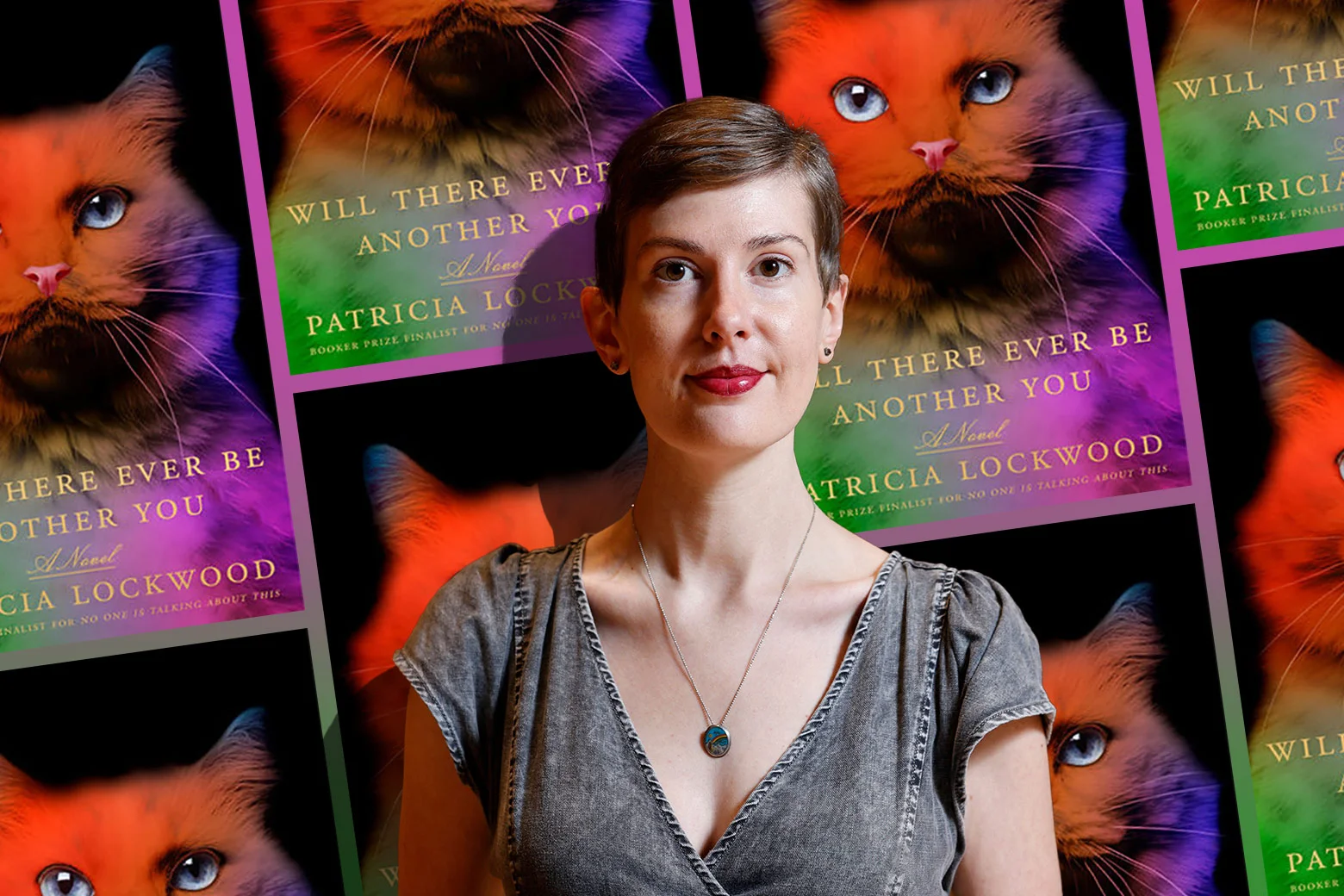
Few endeavors could be more paradoxical than writing a book about being unable to write. Patricia Lockwood’s new novel, Will There Ever Be Another You, is a fictionalized account of a period when, following a bout of COVID, she experienced a period of brain fog akin to “madness.” Lockwood—a poet who went viral in 2013 with the Awl-published ”Rape Joke,” then became one of the most delightful participants in the long-lost group romp known as Weird Twitter—has published a memoir about her father, 2017’s Priestdaddy, and another autobiographical novel, 2021’s No One Is Talking About This, which was shortlisted for the Booker Prize. In the aftermath of her COVID infection, caught in the meshes of a new sort of illness, she found herself unable to locate the right words and striking out dysfunctional paragraphs. “This was her trick, her only trick,” “she” thinks in Will There Ever Be Another You. “How was she supposed to do her trick when everything had been put back in the wrong place?”
“She” is another version of the narrator—that is, Lockwood—and the “another you” of the novel’s title. “Some mornings she seemed true, and then she was I; some mornings she seemed false, and then she was she.” Will There Ever Be Another You does eventually come back to the first-person singular, but before it does, the novel wanders through Lockwood’s disorientation in chapters jungly with bewildering language that occasionally open out into exhilarating clearings. At times the altered state or altered selfhood she inhabits resembles the thoughts of an addled surrealist: She becomes convinced, for example, that there is a secret number between 2 and 3. Sometimes she seems to be stricken by some rare but recognizable form of mental illness, as when her own wrist appears alien to her, and she sends photos to her friends as “proof.” She loses her ability to assess social interactions, confused about whether her neurologist is coming on to her (he isn’t) because “she no longer knew when people had sex with each other.” And sometimes she just seems depressed: “How to say this—that everything felt like drag to her? All clothes, her eyelashes, the fact that she had hands.”
Slate receives a commission when you purchase items using the links on this page. Thank you for your support.
Lockwood is never not funny—that knack, it seems, is impervious to viruses—and her humor often turns on a switchback from lyricism to the unrepentant vulgarity of our shared online culture. She writes of feeling that she’d “fallen so far out of the world, out of the human population, that she could not even rejoin them to watch the butthole cut of Cats.” As a poet, she can turn a sentence that does more work than most novelists’ paragraphs: “Very often she chose not to speak, but retreated into a kind of peacekeeping within herself; had the self-sufficiency of an island, which grew breadfruits and shelter and shade.” There’s a long and slightly crazy passage in the middle of Will There Ever Be Another You that constitutes one of the best readings of Anna Karenina I’ve ever encountered, a woozy love letter to that most lucid of novels, which includes this shrewd and hilarious assessment of its author:
Tolstoy must have felt that he was full of love, and that his love somehow curdled when it hit the air. He must have felt that words exchanged in conversation almost always go wrong. But words delivered in a tract, say, seven hundred pages—and no one can interrupt! No one in the world is your wife, and everyone is the girl as she was when she first encountered you.
To add to the disorientation of her own condition, Will There Ever Be Another You’s narrator also finds herself coping with her husband’s illness, a terrifyingly sudden attack that calls for bowel surgery. The surgery goes wrong and leaves him with a vertical wound in his abdomen that she’s put in charge of tending. Her spouse of almost two decades thinks much like she does, wondering if this strange addition to his body, with its propensity for inconvenient and embarrassing bleeding, “is like having a vagina.” In recovery, the couple become addicted to K-dramas, and the narrator gets put through the paces of literary fame: posing for photos, attending conferences, Zooming with the woman adapting Priestdaddy for TV, addressing students by announcing, “They’re lying to you. Which they were, whoever they were.” These are the accoutrements of being a writer, but underneath it all, she wonders if she still is one.
Obviously, Lockwood is. But Will There Ever Be Another You is considerably more challenging than her other books. Many of its sentences have the aura of marvels but don’t make much sense, like: “Pattern rode over the earth like a horsehide, rippling sometimes under iridescent flies.” Sure, the prose resembles poetry, but poetry is short—or at least shorter than a 256-page novel. Putting language through its paces is the poet’s mandate, but a novelist needs a firmer structure to hold on to her reader. No One Is Talking About This, for example, made an extended, arresting comparison between Lockwood’s online life and the short, unendurably sad six months that her niece, born with a rare genetic disorder, survived on this earth. Priestdaddy chronicled Lockwood’s relationship with her narcissistic father.
Will There Ever Be Another You would seem to have such an arc, the story of an illness and a recovery. However, the section describing the worst of the narrator’s long COVID symptoms can be pretty heavy sledding, a hack through words that often feel detached from any fixed meaning and sentences that don’t always feel connected to each other. Referring to herself as “she” adds to the muddle when the narrator interacts with her mother and sister, and who the pronoun applies to at any given moment becomes unclear. Probably that’s just what brain fog feels like, but how many readers really want to feel that, and at such length? It’s a relief when the first part of Will There Ever Be Another You concludes, and Lockwood starts using “I” again, but there are still segments of the book that feel like cascades of non sequiturs, like dream logic or the ramblings of someone on mushrooms, a drug the narrator briefly tries in order to “rewire my brain.” It doesn’t help that there’s perhaps too much material about schmoozing with other writers and a movie star (unnamed) who is thinking of starring in an adaptation of No One Is Talking About This—elements that share a slackness all too common in accounts of contemporary literary fame.
The task Lockwood set for herself of writing the unwritable isn’t necessarily impossible. If anyone could do it, surely it would be her, a nimble wit whose language-bending eccentricities reliably set off little explosions in the reader’s mind and never become labored. And sometimes she does pull it off. I often found myself underlining remarkable passages from the novel—as when the narrator describes herself as “desperate to be released from the tarot pack of my own past, which could only be laid out in so many ways”—and laughing out loud. But Will There Ever Be Another You lacks the intensity, and perhaps the purity, of both Priestdaddy and No One Is Talking About This. If fear struck Lockwood when she contemplated simply no longer being a writer, she does not convey that, the terror of no longer really knowing oneself blunted by her jokes and quips. On the subject of words failing her, words fail her a bit too often here.



